From bug bounties to online communities, discover 10 IT side hustles to make money from home this weekend.
Key takeaways
- IT professionals can monetize existing skills through freelance development, cybersecurity consulting, or creating tech courses and content.
- Side hustles offer flexibility to specialize in skills you don't use at work while earning an average $891 extra monthly.
- High-demand IT skills like software development and cybersecurity can command $35-100+ per hour in freelance rates.
Whether you’re a coding whizz or an expert in data analysis, you can earn good money with IT side hustles. In fact, side hustles are skyrocketing in popularity across all niches.
In 2024, the global gig and side hustle market was valued at around $556 billion. That’s set to rise to a whopping $1.8+ trillion by 2032!
But are side hustles worth it if you’re an IT expert? And what are the best IT side hustles?
If you have a full-time job, you’re likely to be strapped for time. Sound like you?
Don’t worry - in this guide, we’ll take you through the best IT side hustles you can start on your weekend break.
Are IT side hustles worth it?
IT side hustles can supplement your income, help you to follow your passions, and even start a new career path.
On average, in 2024, side hustles made people an extra $891 per month (on top of their main income source). IT roles are in high demand, and so can draw in better rates.
Aside from the extra funds, side hustles provide space to focus on what matters to you. You can specialize in the skills you wouldn’t be able to use in your day job. For example, if you’re a backend developer, you could run a UX design side hustle.
Plus, side hustles offer flexibility, allowing you to make money from home, on your phone, and when traveling.
10 IT side hustles you can start this weekend
Generally, IT side hustles require certain skills, qualifications, and experience. You won’t be able to learn these overnight. So, if you have no IT skills, don’t expect to set up a business quickly.
You’ll first need to spend months - or even years - learning the ropes. (Unless you go for no-code options or AI-generated options, for example.)
However, once you’ve got the core skills, it’s very easy to create a thriving business. Have some free time this weekend and want to get started?
Here are 10 IT side hustles you can work on right away.
1. Software development freelancer
What will you do?
As it sounds, freelance software devs design and implement computer software. But rather than working for a company, they earn through their own business.
You’ll be using coding to create software or resolve issues with existing programs.
What do you need?
You’ll usually need some specific skills or qualifications for this role. These are:
- Degree in programming, computer science, or a related field
- (Or) self-taught coding/programming skills
- Portfolio of software you’ve created
However, with AI, it's possible to get into 'vibe coding', where you use an LLM tuned for coding to generate software based on your prompts. Then, you simply test and refine the code.
This means that even the most amateur of programmers can create software, without having the vast experience of a software engineer.
Outside of core skills, you should also have an awareness of software marketing and freelancing platforms.
You’ll also need to consider how similar the services you offer are to your current employment. This is something u/tdic89 comments on in the subreddit, r/sysadmin. They offer development on the side, but their software isn’t at all related to their job. They recommend checking your side hustle isn’t breaking a non-compete clause, for example, by working for a competitor.

How much can you earn?
When it comes to the best IT side hustles, software development is a popular choice. Pricing varies between freelancers, but software developers typically charge between $35 to $100+ per hour.
You could also earn more if you have a specialist skill. For example, if you’re highly experienced with a particular coding language.
How to start this weekend:
If you have the skills to start this side hustle, you can make a start by:
- Create a portfolio of your projects
- Set up a profile on a freelancing site or ecommerce marketplace, like Whop
- Alternatively, start your own website with a site builder (though this can be more time-consuming)
- Develop a business name and logo with Canva or Photoshop
Expect to do some promotions and job hunting at the start, as you gather a clientele.
In time, you could even hire other team members and grow your freelance business into a software company. Or why not go into web or app development, and sell apps for Whop? (Psst - Growth App Factory can show you how.)
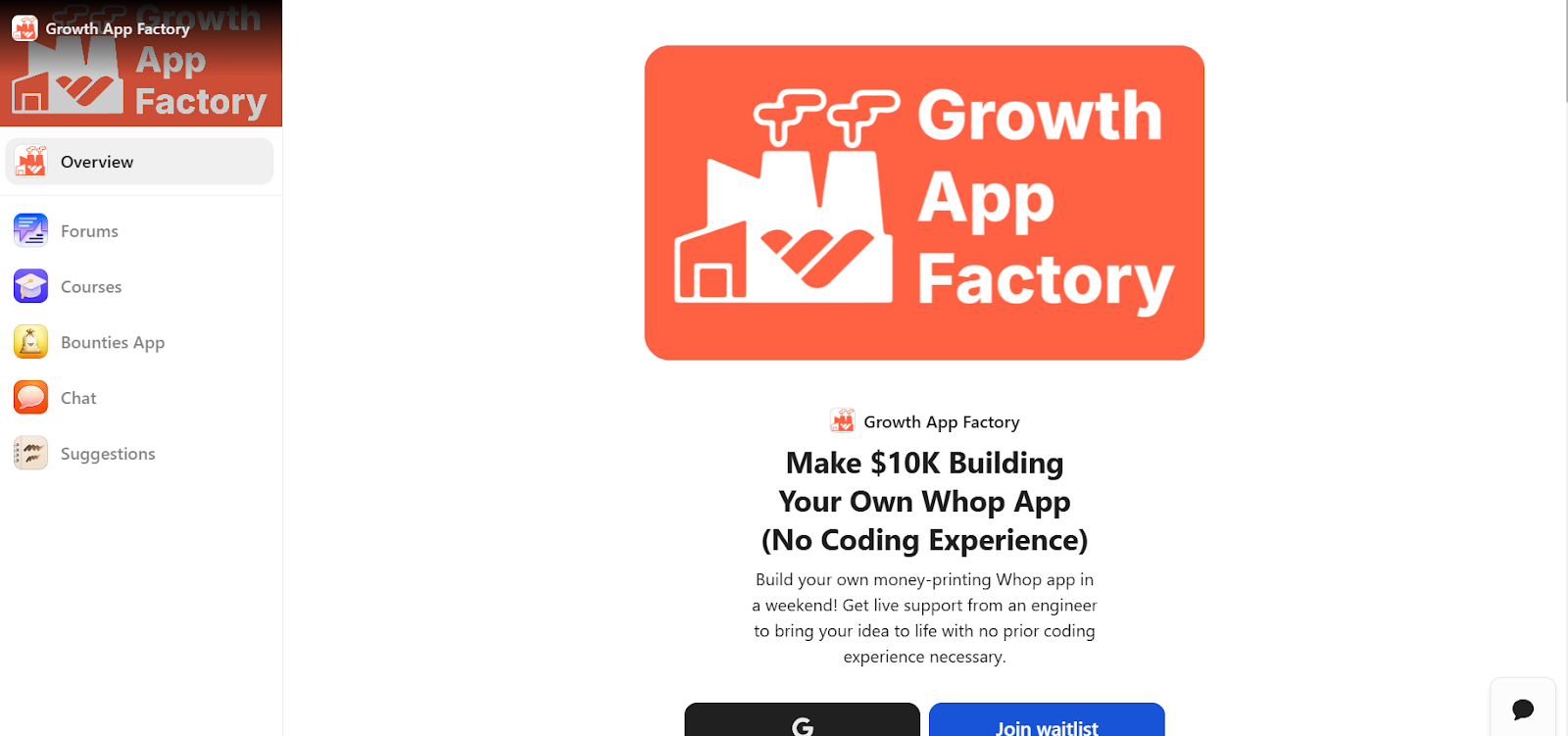
2. IT training and courses
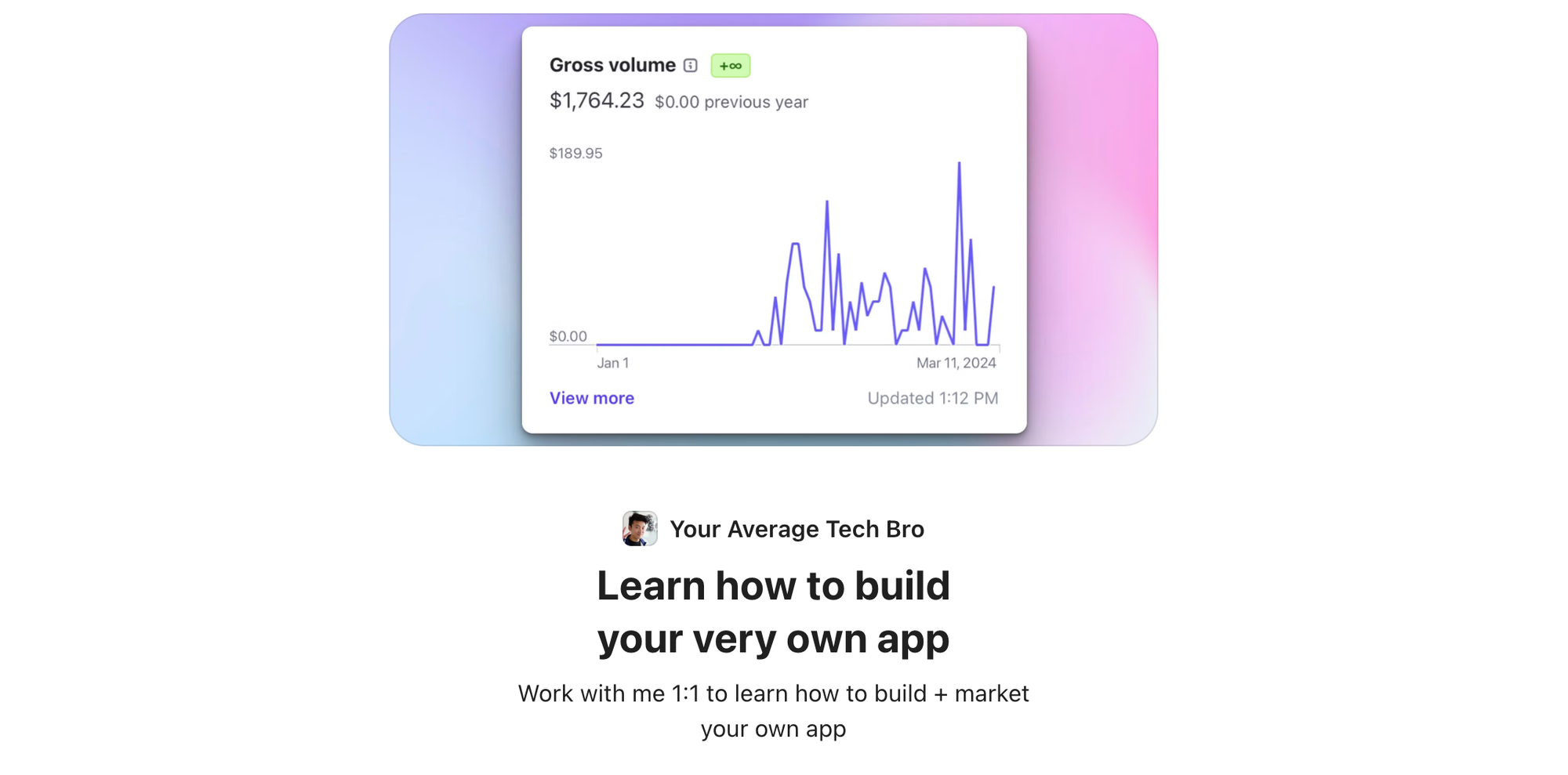
What will you do?
Tech courses are in demand - and can eventually become a passive income source. You’ll be passing on your skills, and potentially promoting other services you offer too.
You could host live workshops, or create pre-made videos and other content for a digital course.
What do you need?
For this hustle, you’ll need:
- Qualifications or experience in your tech specialism
- Ability to explain complex technical concepts in easy-to-understand language
- Video making, editing, and writing skills
- Good video camera and editing software
- (Optional) A teaching or online training qualification
How much can you earn?
The amount you can earn will depend on your skills, pricing, and the type of course you offer. You might earn $100+ per year, or thousands of dollars.
For example, Ritesh Verma offers multiple coding courses on Whop. His Coding Bot course teaches students how to create a ready-for-sale checkout bot.
Ritesh's students pay a $400-lifetime fee to access the course. (Some course creators opt for a subscription model with monthly or weekly payments, though). Currently, there are 100+ students enrolled on the course, so that’s over $40,000 in sales. Pretty impressive!
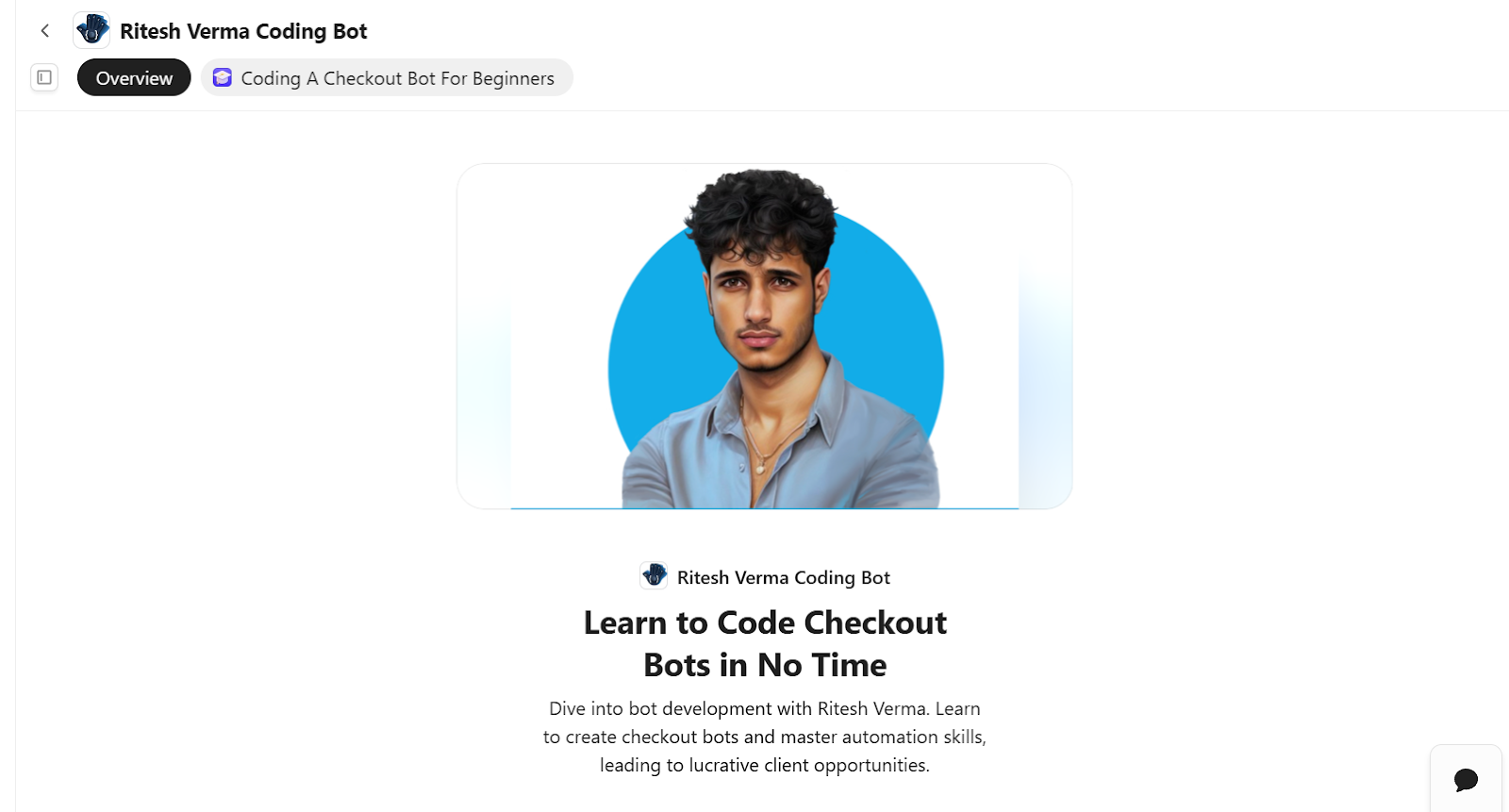
Again, in-demand skills can potentially bring in extra money. For tech courses, these include web development and DevOps.
How to start this weekend:
Naturally, there’s a bit of prep for creating an IT course. You’ll need to structure your course, and develop and write your lessons. If you’re including video content in your course, you’ll also need to record and edit these.
Whilst this takes time, you could create some shorter one-off workshops to test the water. On Whop, you’ll have access to our free course creator to get you started. So, no hunting for somewhere to host your course.
With our native apps, you can also sell your course in a bundle with other useful tools, like a forum or live chat.
It takes just 15 minutes to set up a whop, so you could start this easily over a weekend break.
3. Create tech video content
What will you do?
Video content is hugely popular right now. If you don’t want to create formal courses, you can also share your skills through online videos - for example, on TikTok or YouTube.
Although some tech videos focus on phones, laptops, etc., there’s also plenty of content aimed at IT professionals and newcomers. Video tutorials are always popular.
As with courses, you’ll need to record videos. But these can be recorded and uploaded just with your phone, especially if you’re using TikTok. You’ll also research and write videos, and keep up with trending topics.
You should aim to keep your posts consistent. YouTubers typically post once per week or month at a minimum. TikTokers may post more regularly, at least several times per week.
What do you need?
To get started to creating IT videos, you’ll need:
- A suitable video camera (even a good smartphone camera will do)
- Editing software - these can be on your PC or mobile
- An awareness of social media marketing practices and trends
Ideally, you should also have expertise within an IT niche. For example, in r/sysadmin, u/Additional-Bass8488 comments on their success with cybersecurity videos on YouTube.
How much can you earn?
There are lots of different ways to earn through video content, including:
- Sponsored content
- Affiliate marketing schemes
- Paid advertising
- Subscription services (e.g., Whop)
- Paid communities
- Digital products
- Physical merchandise
You can start some of these up ASAP, but others will require you to build a following first.
For example, to join the YouTube Partner Program, you’ll need at least 1,000 subscribers and 4,000 watch hours within the past 12-month period (or 10 million videos to your YouTube Shorts in the past 90 days).
The amount you’ll earn depends on how much time and effort you can invest into the channel. But once platform fees are paid, the average revenue per creator works out at around $150 per year. However, this can reach $12,000+ for some top creators.
If instead you decide to monetize your videos with Whop, you keep up to 97% of your earnings - with no platform fees.
How to start this weekend:
Your first step will be choosing a niche for your channel, and then setting it up. As the Reddit comment above illustrates, your earnings typically won’t come in overnight (unless you go viral on YouTube).
However, you can speed up the process by selling exclusive videos on Whop, or creating a paid community for your fans (more on this later!).
Learn more about the best video monetization platforms for content creators.
4. Cybersecurity consultancy
What will you do?
IT services aren’t just about creating something new. It’s also about protecting what businesses already have, including their servers, software, and more. That’s where cybersecurity comes in.
As a cybersecurity consultant, you’ll ensure these systems - and the data contained on them - are protected from cyber-attacks.
What do you need?
You’ll need strong qualifications and a high level of experience to work in this field. So, it’s a good option if you’ve worked in the industry for 5+ years, and have a relevant degree under your belt.
On top of this, there are also specific cybersecurity certifications that can give you a boost, e.g., the Certified Information Systems Security Professional (CISSP).
Make sure you have an up-to-date understanding of programming languages, operating systems, firewalls, and other important aspects of computer security. You can also specialize in security management or penetration testing.
You’ll also naturally need business and marketing skills to grow your consultancy.
Here's how to know whether you're ready to become a consultant.
How much can you earn?
It depends on experience, but cybersecurity consultants can earn upwards of $100 per hour. So, it’s definitely a worthwhile side hustle.
How to start this weekend:
First, you’ll need to develop a business plan, with competitor analysis, marketing strategies, and establishing your ideal customer base.
Once this is complete, you’ll need to set up a website to advertise your services. But if you’re looking to get started quickly, why not offer your services on Whop?
P.s if you don't yet have the skills to become a cybersecurity consultant, you can join a community or course on Whop and learn from a seasoned professional.
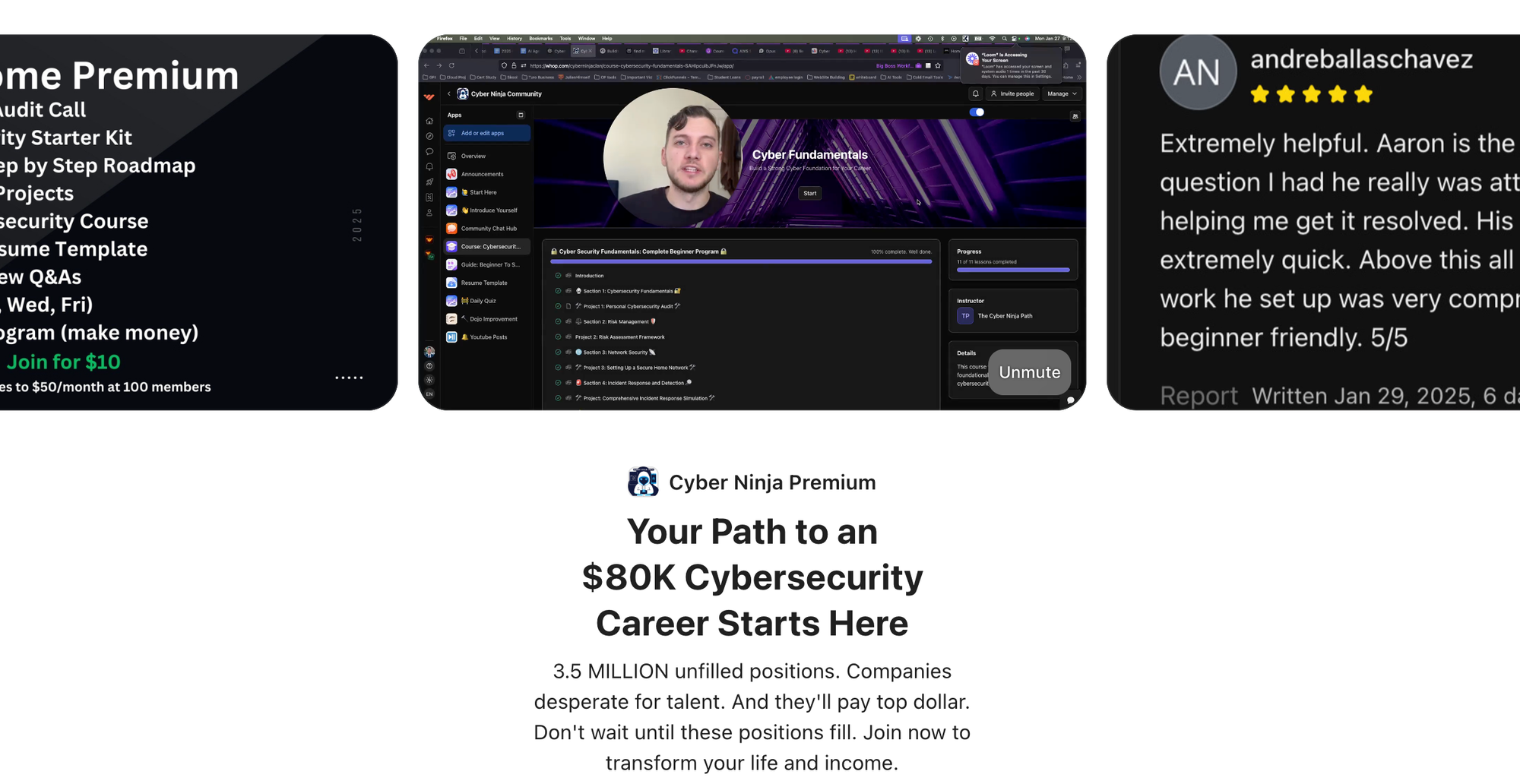
5. Ethical hacking
What will you do?
If you’re passionate about fighting cybercrime, then ethical hacking is one of the best IT side hustles for you. You’ll be looking for weaknesses in websites and servers to keep them safe from malicious hackers.
What do you need?
To set up an ethical hacking business, you’ll need:
- a degree in computer science or a related subject
- (and/or) extensive industry experience
- up-to-date knowledge of cybersecurity, operating systems, and programming
You should also aim to have a portfolio of your programming projects, or a website with ethical hacking case studies. Like many other IT side hustles, you’ll also usually need marketing and business development skills, along with networking.
You can focus on ethical hacking for mobile applications and games, if this interests you.
How much can you earn?
Freelance ethical hackers can charge $100+ for their services - though this naturally depends on experience. As with many of the options on this list, there are additional ways to earn, including courses and more.
For example, Hack Academy offers an ethical hacking and penetration testing course on Whop.
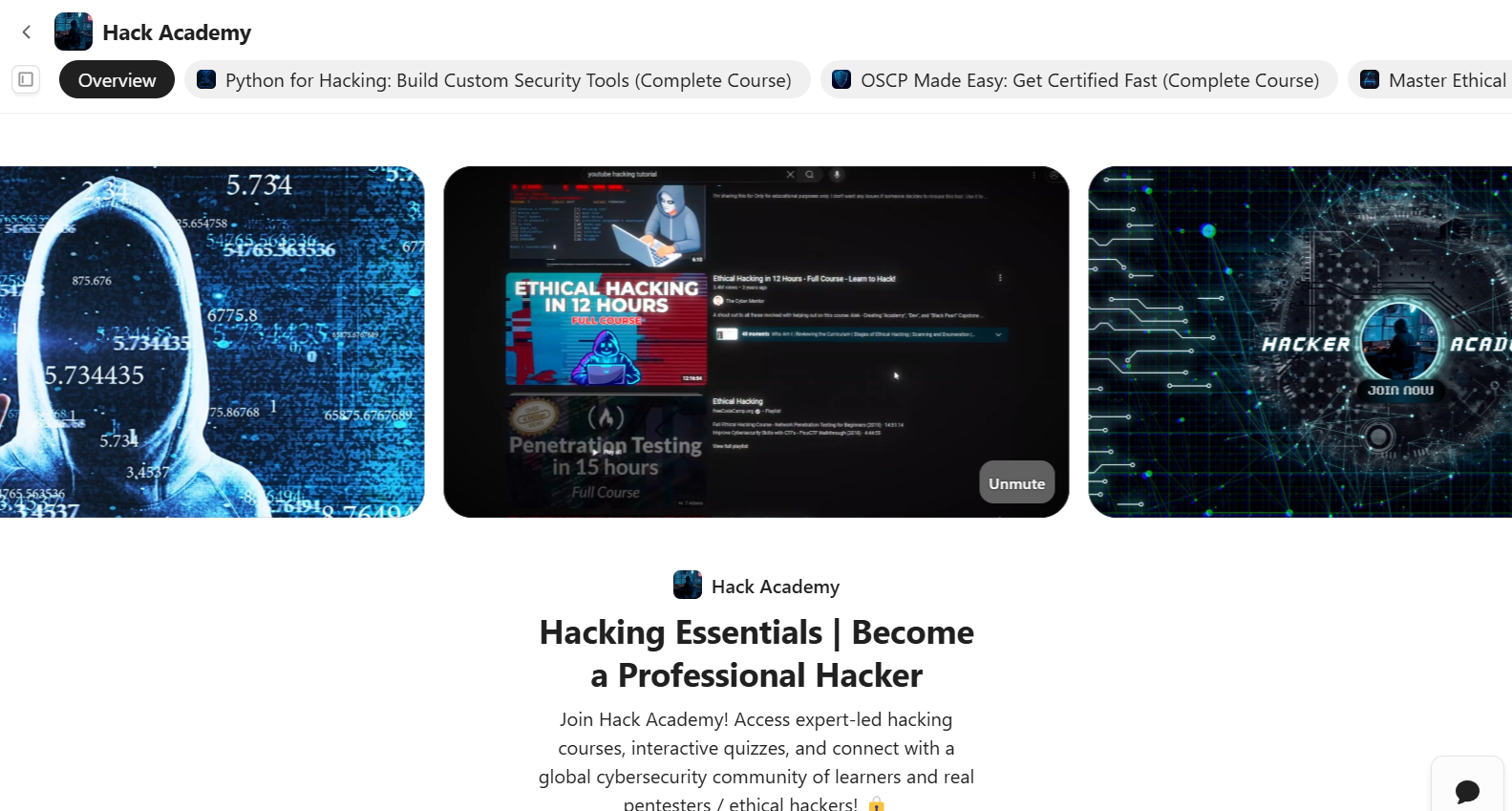
How to start this weekend:
To start your ethical hacking business, you’ll need an online base to offer your services. You can set up your own website with builders like Squarespace, WordPress, etc.
This is good for branding, but can be quite time-consuming to complete over a weekend. It’s typically quicker to set up on a freelancing site, like Upwork or Fiverr, or a dedicated digital marketplace, like Whop.
Ready to start? Discover the top marketplaces for selling online.
6. Bug bounties
What will you do?
Another form of ethical hacking, bug bounties involve searching for errors and vulnerabilities in websites, software, or computer systems.
You’ll then report any you find to the company or organization, so they can make improvements before a malicious attack. You’ll usually be paid for identifying a bug once it's been validated by the company.
What do you need?
A lot of the requirements are similar to ethical hacking. For example:
- Degree in computer science
- (and/or) Extensive experience with cybersecurity, including uncovering system vulnerabilities
- In-depth understanding of coding languages, including Javascript and Python, and web applications
- Keeping up-to-date with current vulnerabilities and bug-hunting strategies
You could also take a certified training course in bug bounty hunting or penetration testing.
How much can you earn?
The amount you’ll earn from a bug bounty depends on the severity of the vulnerability. That being said, you can earn between $100+ to several thousand dollars. So, it’s a good side hustle if you already have a full-time or part-time job.
How to start this weekend:
There are several platforms for bug bounty opportunities, including HackerOne, Initgriti, and YesWeHack.
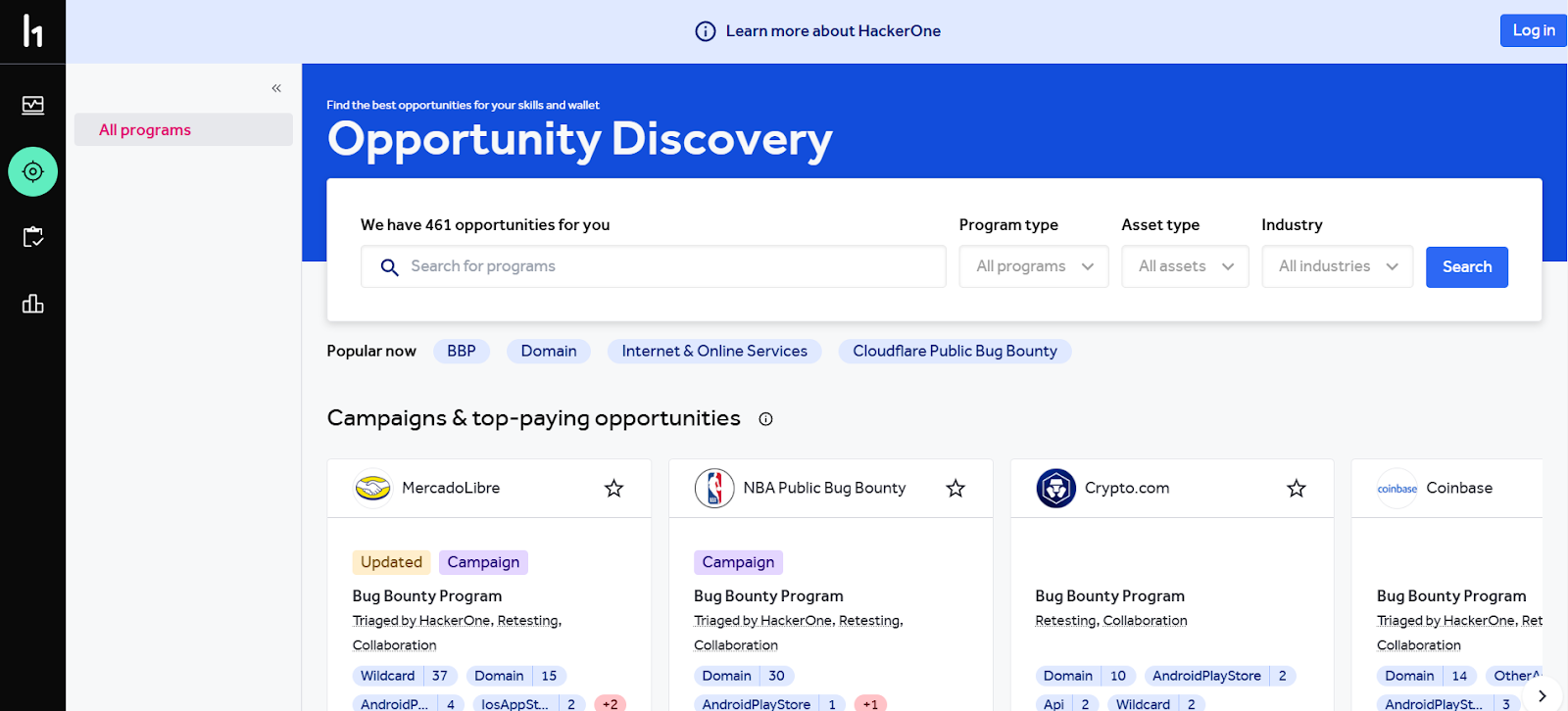
On HackerOne, you can submit reports to leading brands and organizations. There’s also clear pricing information about how much you could earn.
For example, MercadoLibre offers rewards of between $150 to $300 for reporting bugs of medium severity. The average bounty for these is $114.
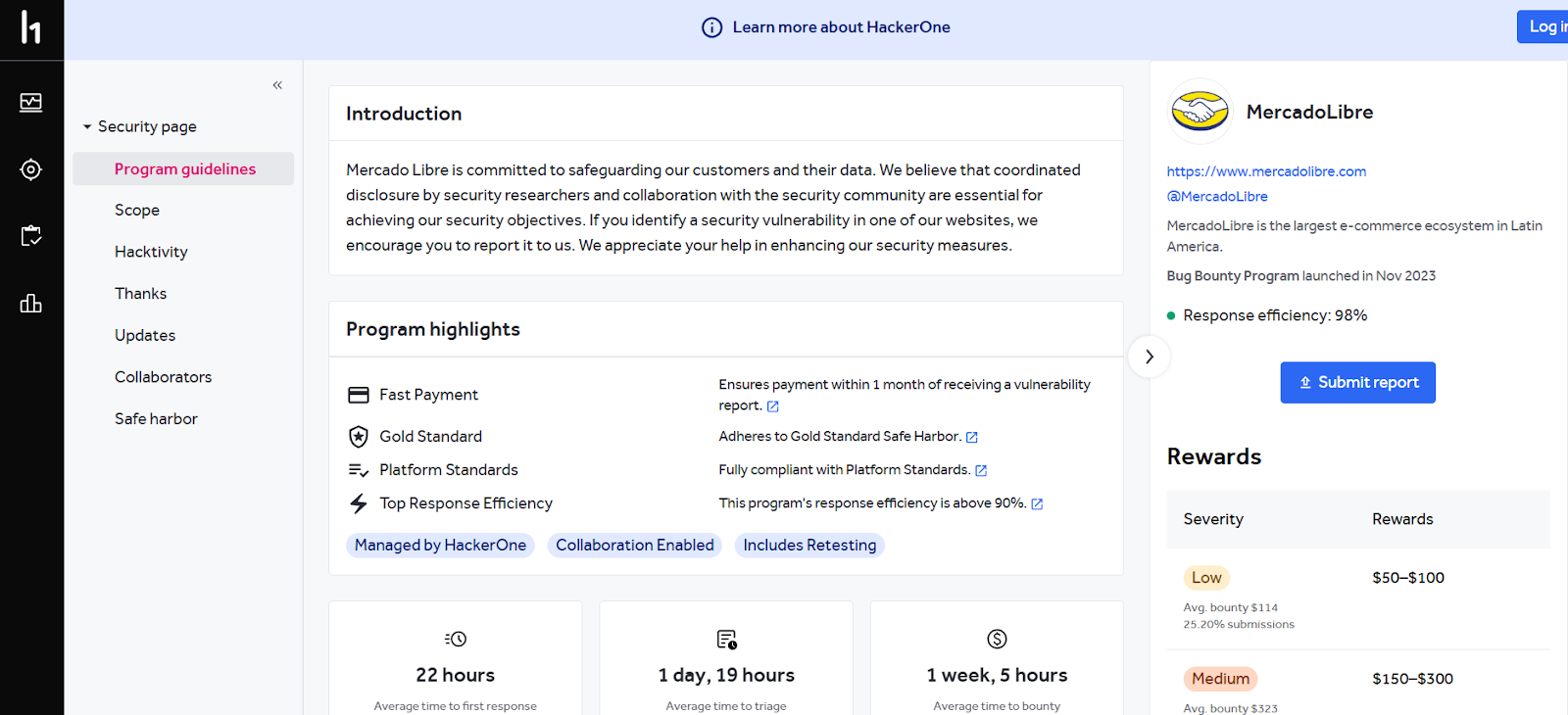
You can get set up on these sites pretty quickly - but keep in mind that you’ll need to grow your profile.
These platforms often include leaderboards, which can really boost your reputation with companies.
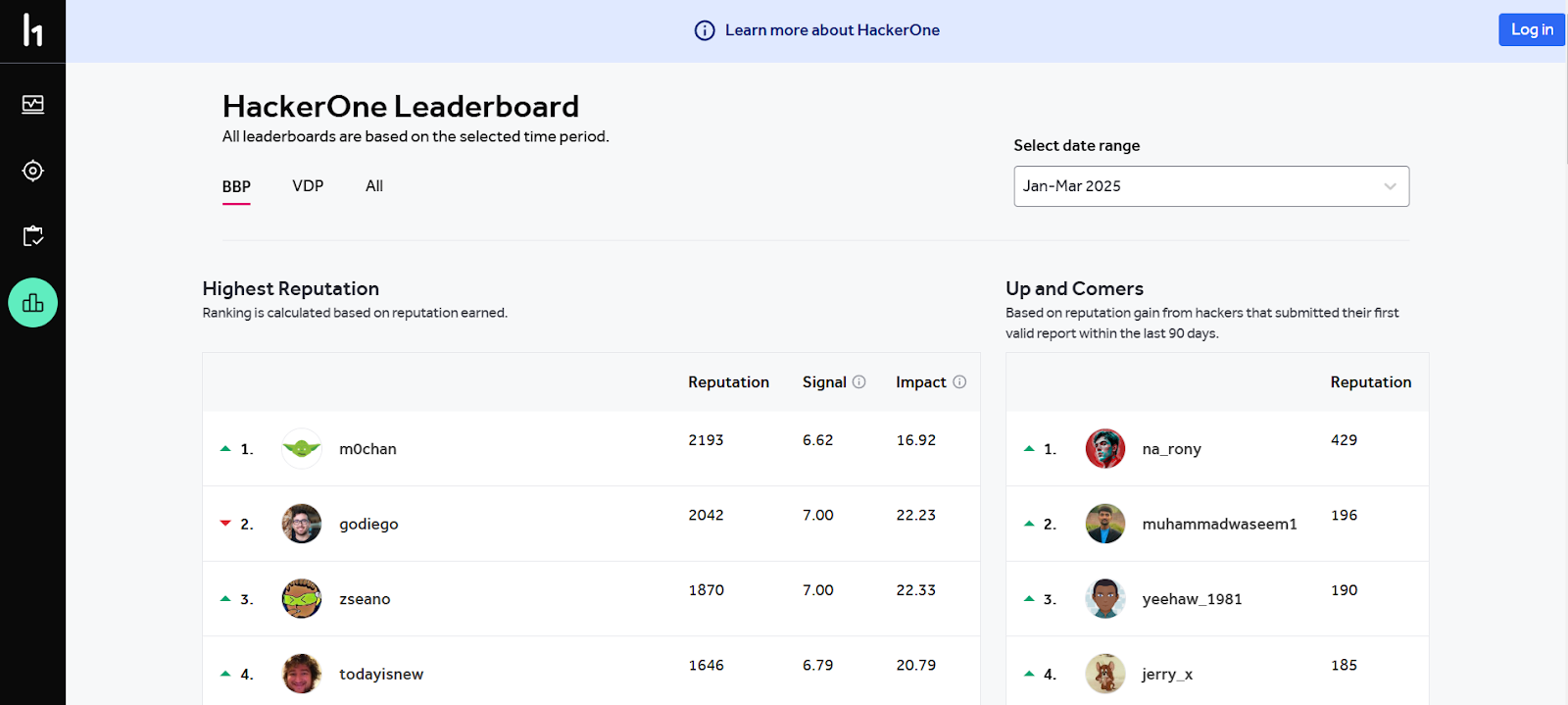
7. Sell digital products
What will you do?
Selling products online is a quick way to start earning on the weekend. But it doesn't have to be physical products. If dropshipping isn't for you, digital products are a solid money-maker. And in the age of digital commerce, they're a perfect side hustle for IT professionals.
There are lots of tech-focused products you could make and sell on an online marketplace.
For example, many small businesses are looking for stylish website designs, but don't want to hire a web developer outright. As an alternative, you can sell pre-made website templates - like this Website Template Customizable on Whop.

These are highly popular, and are a great way to turn your coding prowess into a passive income source. You could even make extra by offering customisations and tailored customer support.
Or if you're passionate about apps and software, why not sell your source code on platforms like Whop or PieceX. Customers can then download the code and use it to create their own custom applications, like this Food Recipe app from haipham1594 on PieceX.
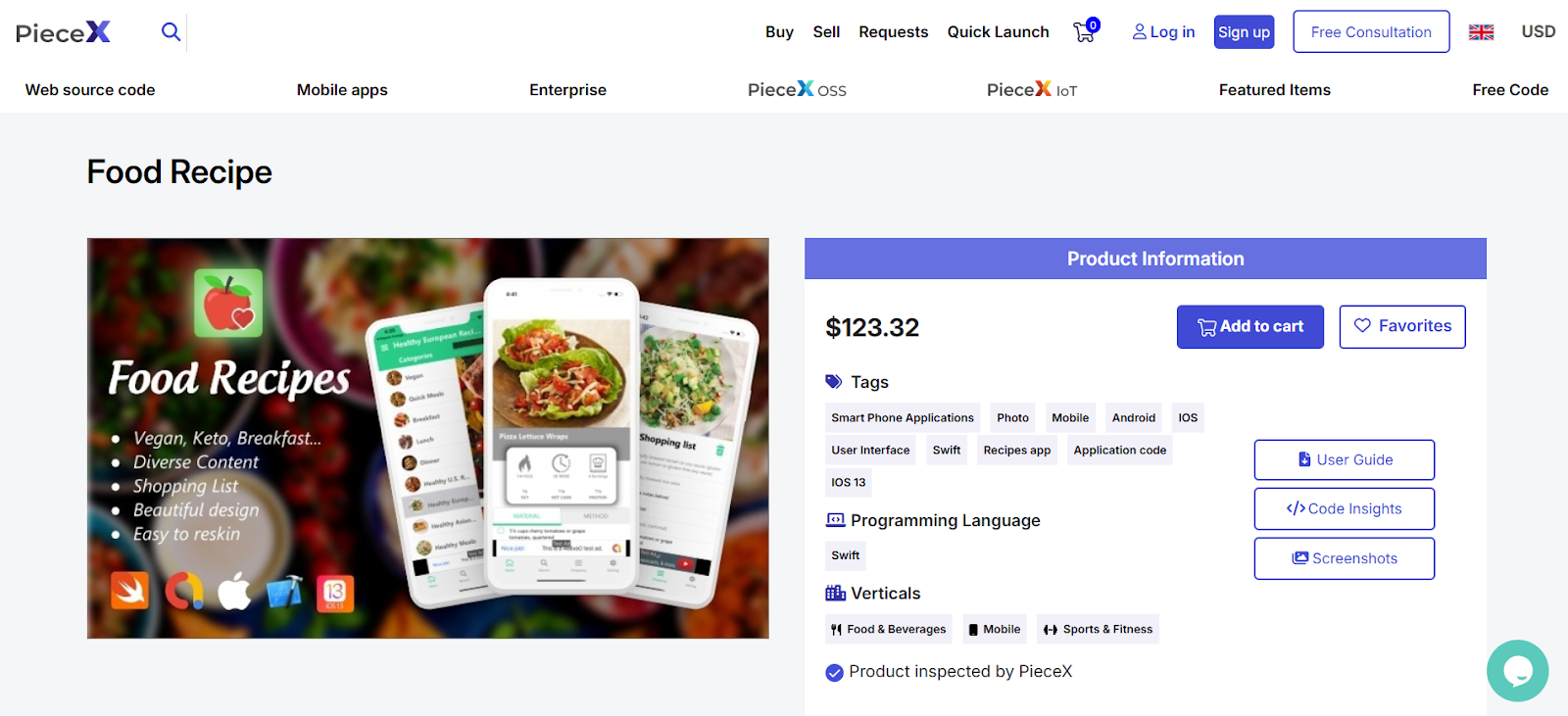
What do you need?
Digital products are so versatile because they don't have a lot of set-up requirements. Here's what you’ll need to start:
- Experience with coding or another IT skill
- The right platform to sell from
Depending on what you want to create and sell, you might also benefit from graphic design skills. For example, one easy way to earn is by creating educational eBooks and learning materials for tech students.
You’ll typically need to use apps like Canva to make engaging designs - or you could use AI to help you develop these.
How much can you earn?
Naturally, it depends on demand for the product. That being said, web and app templates are hugely popular, and can bring in good money. For example, the recipe app above brings in around $123.32 for each sale - though according to the pricing info on the platform, this can vary.
On Whop, you could also charge monthly for your templates or digital products as a service. Wordpress Premium Templates sells access to exclusive templates and themes, along with access to their online community, for $19.99 per month.
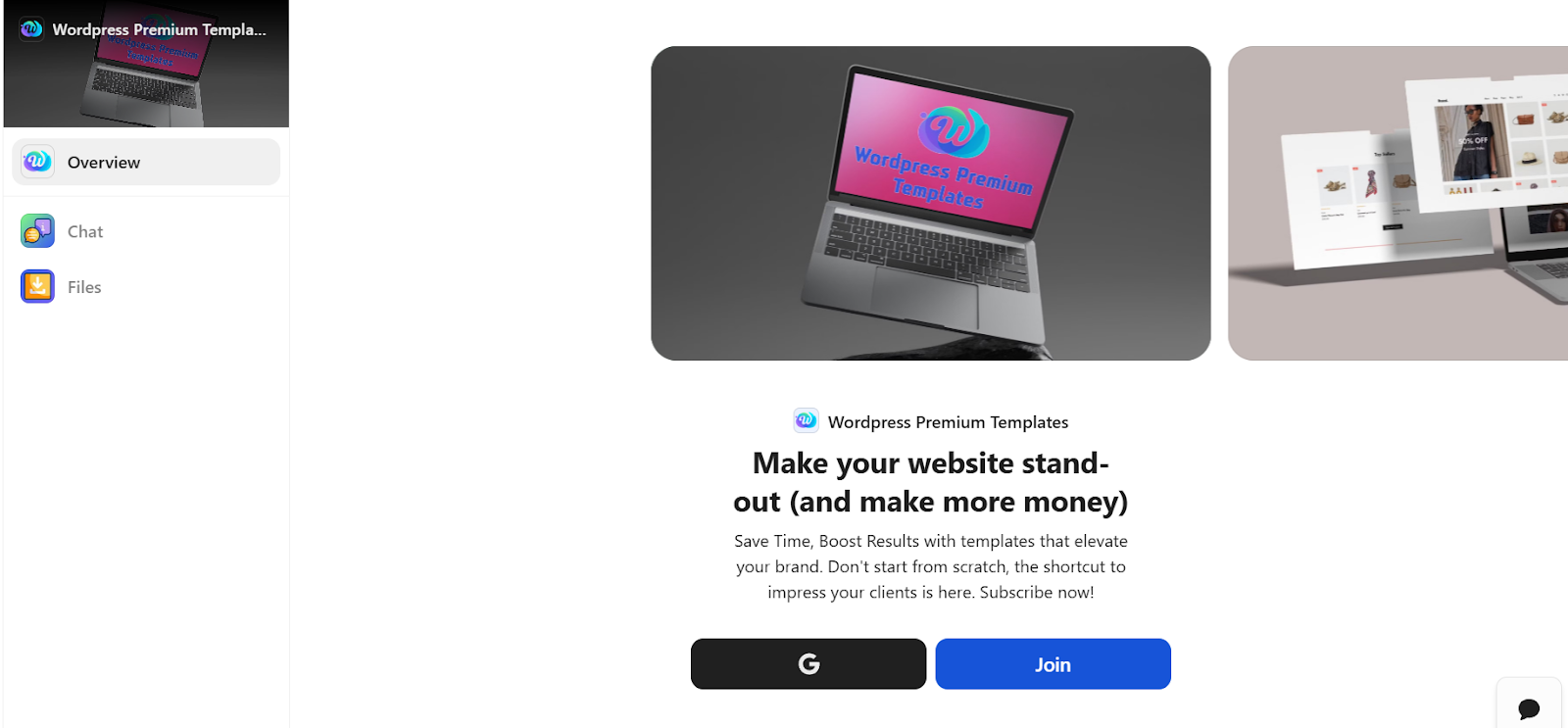
Creators on Whop earn over $7,300 a month with digital products.
How to start this weekend:
Once you've set on the product you want to sell, the next step is deciding where to sell. You could build a website to sell digital products - but that takes much longer than a weekend.
To make a quick start, it’s best to use a digital marketplace, like Whop. That’s because all the tools you need to sell are ready-built into the platform. For example, Break Into Tech sells learning resources, along with a course teaching how to build apps with AI.
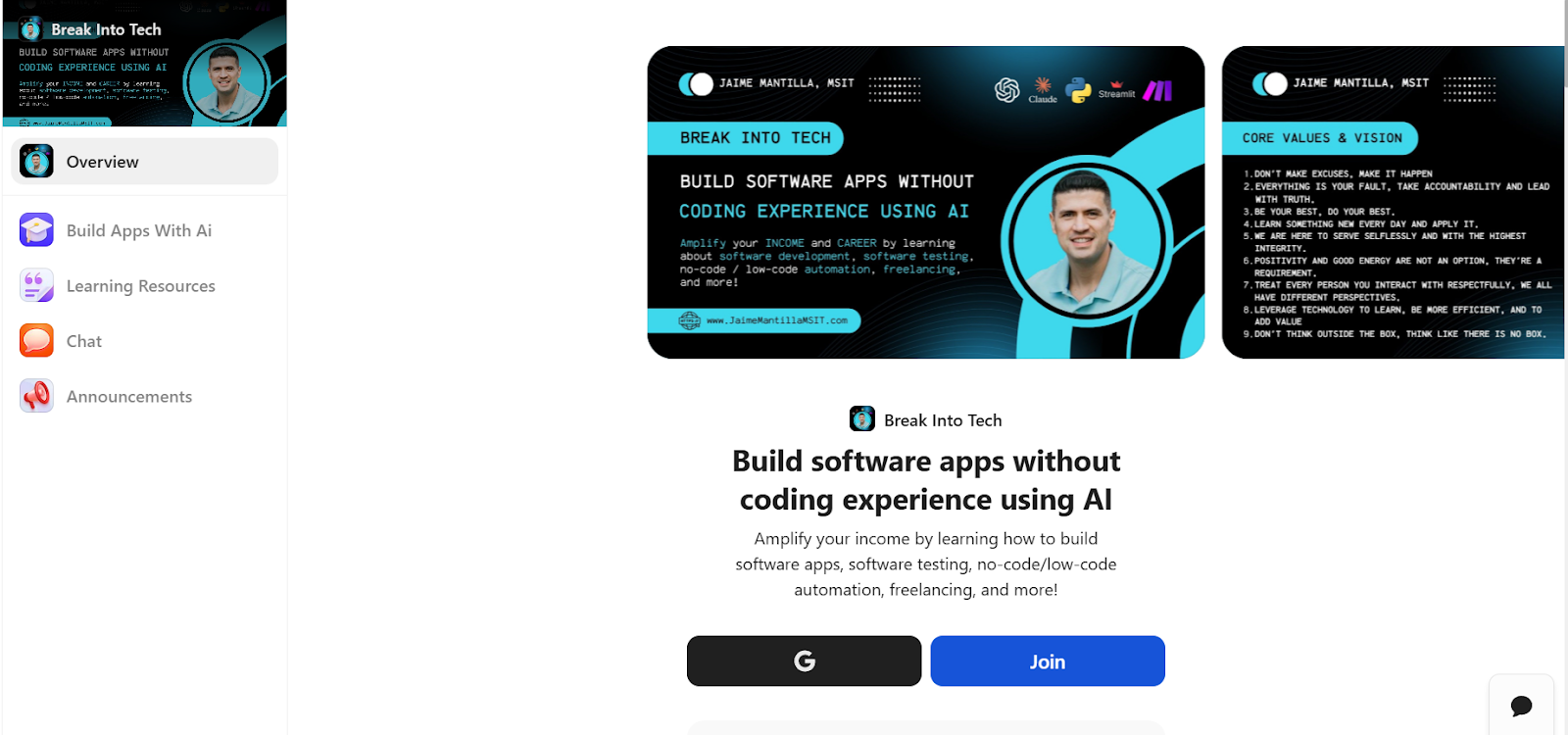
8. Data analytics
What will you do?
Data analysts gather, clean, and analyze data to find useful, actionable insights for organizations and brands. They also create reports to share this data in easy-to-grasp language - for example, for stakeholders, marketing teams, etc.
Setting up as a freelance data analyst is a good side hustle to supplement your income.
What do you need?
If you’re a data analysis veteran, you’ll likely already be familiar with the role's requirements. But if you’re looking to enter this field, here’s the rundown:
- Bachelor's degree in data analytics, data science, or a related subject
- Or data analytics bootcamp or digital course
- Master’s qualification related to data analytics can also be useful
- Experience with programming languages used in data analysis, like Python, R, and SQL
- Data analysis work experience
- Knowledge of data analysis processes, including statistics and data cleaning
Starting a freelance business also requires marketing and networking skills, so you’ll need to be prepared for this. Alternatively, you could hire an agency to take care of this for you.
How much can you earn?
Taking a look at the top freelancers on Upwork, freelance data analysts can charge anywhere from $30 per hour to $100+ per hour. It all depends on your experience and expertise, but it’s certainly a lucrative niche.
How to start this weekend:
Once you have a business plan drafted, you’ll want to set up an account on some freelancing websites to find work. Popular options include Upwork, Freelancer, and Fiverr. But if you already have a good industry background (and it doesn’t conflict with any non-compete clauses), you could also set up your own website or promote on LinkedIn.
You’ll need to grow your profile on freelancing websites. So, be prepared to take some lower-paying opportunities at first, as you gather testimonials from clients. Make sure you also have a portfolio of the best data analytics projects you’ve worked on.
9. Start an online tech community
What will you do?
Aside from course creation, there are other ways to share your knowledge through an IT side hustle. If you’d like something more social, you could create an online community. This could include live chat, video calls, and forums, depending on the platform.
You’d manage the community, connect with members, and share relevant resources. In the tech niche, you could either create an interest group, or a more in-depth IT learning group - though the latter option provides more space to monetize.
You can either charge to join the group through a paid membership. Alternatively, you could keep the group itself free, then use it to promote digital products, like courses, eBooks, and coaching sessions.
What do you need?
To start up an online community, there are few things you’ll need:
- Expertise in your IT niche
- A hook to draw community members - e.g. exclusive industry insights, job opportunities, networking
- A platform to host your community, like Whop, Discord, etc
In some cases, you’ll also need a separate platform to monetize your community. For example, though Discord has some monetization options, these are relatively limited - and currently only apply to the US. It's much better to use a platform like Whop to charge for paid memberships.
It’s not completely mandatory, but you’ll also benefit from having a strong social media presence. You can then promote your community to your ready-made fans. It’s also a good option for tying in with other hustles, like coaching or courses.
How much can you earn?
The amount you can earn from an online community varies, but it’s potentially a very lucrative hustle. For example, consider the AI Wealth Academy.

Pricing for the community is $497 per month. With 88 people currently paying to be part of this online space, it’s a clear winner, earning $47,737.

In the tech niche, cybersecurity is a hugely popular niche for communities. For example, cyberky offers a subscription to their cybersecurity community for $50 per month (Cyber Punk plan) - or a single payment of $1,200 (with the Cyber Warrior plan).
With 126 people on the Warrior plan, that’s a whopping $151,200. Of course, you’ll need to factor in fees - but that’s still a huge earner.
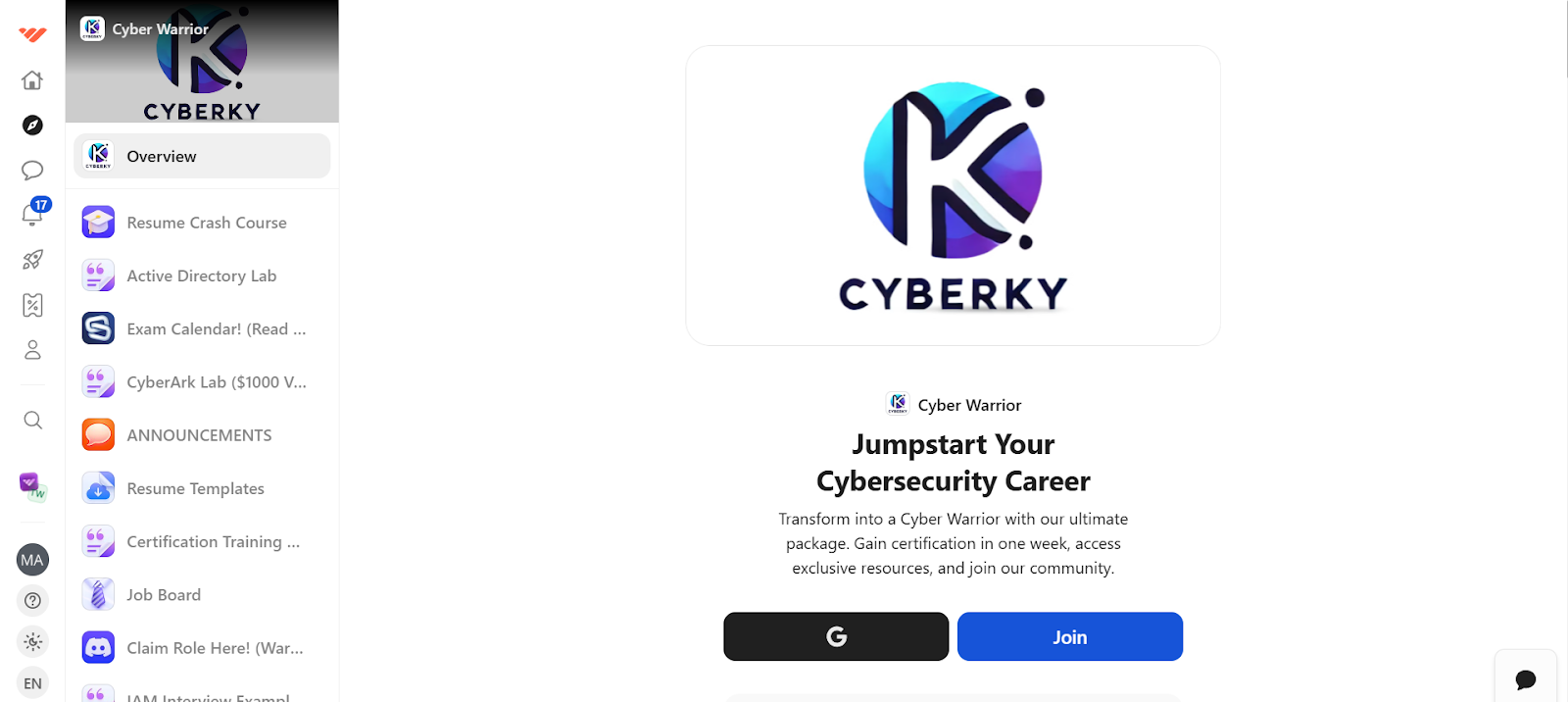
So, if you’re looking for the best IT side hustles, don’t dismiss setting up a learning community.
How to start this weekend:
Whilst some website builders do offer community creation tools, they’re often limited and time-consuming to build. If you’re aiming for an IT side hustle to start over a weekend, a ready-made solution might be a better option.
For example, you can sell access to paid communities on Whop. With Whop you create your own whop, which is your digital space, and then you fill it up with native apps. So, these include the staples of community spaces, like forums and live chat.
Then you just add the ones you want to your product and start selling. This really cuts down the time it takes to start your hustle.
Want to start an online community? Find out how to engage community members in our handy guide.
10. AI services/consultancy
What will you do?
AI is hugely in demand right now, so it’s another good option if you’re looking for tech side hustles. There are a lot of ways to utilize AI in your business. If you know your way around AI tools like ChatGPT, etc., you could offer your services on a freelancing platform, like Upwork.
For example, you could work with businesses to create a chatbot to advise and support their customers, or help brands to build AI models to suit their needs.
If you have a lot of experience, you could also set up an AI consultancy. In this role, you’d be reviewing the current systems used by a business or individual, and then advising them on how AI could streamline and improve those processes.
You’d recommend tools for them to use - and this could potentially lead to them using your other AI services.
What do you need?
- Experience working with AI tools and building AI models
- Access to AI tools
You’ll be suited to this hustle if you work (or have worked) as an AI engineer or in data science. Whilst it’s not compulsory, there are degrees in artificial intelligence. Though these can naturally be expensive - and you can also learn to work with AI using online courses, like those on Whop.
How much can you earn?
Taking a look at freelancing platforms, AI developers and creators can charge between $20 to $100+ per hour, depending on their skills and the service they offer. AI consultants can earn between $80 and $100+ per hour.
How to start this weekend:
As with many side hustles for IT professionals, your first step will usually be setting up a profile on a freelancing site. You’ll need to gather together a portfolio of AI projects you’ve worked on - either from work or your own personal projects. Building up a reputation on these platforms can take time, though.
If you’d like something you can start selling right away, you could also create digital products about AI. Artificial intelligence is skyrocketing in demand, so lots of people are looking for eBook guides, podcasts, etc, to explain the ropes. You can even use AI tools to speed up the creative process - then sell on Whop!
Start your IT side hustle this weekend with Whop
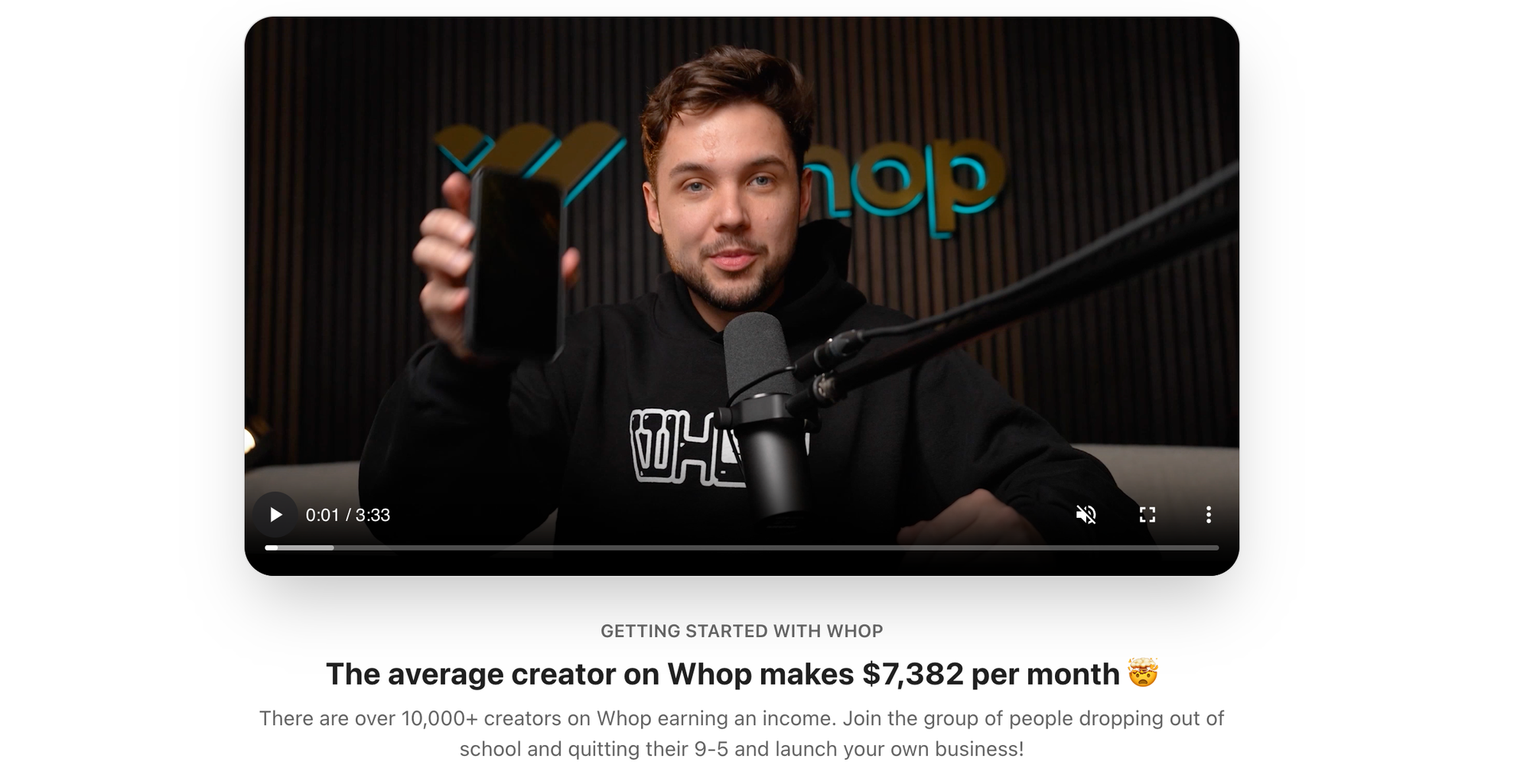
IT skills are in demand - but setting up a business takes too much time. But does it have to? On Whop, it takes just fifteen minutes to set up your online store. From your “whop” - your base on the platform - you can offer all kinds of digital products, including:
- Digital courses
- eBooks
- Coaching and consulting sessions
- Online communities
- Podcasts
- Newsletters
This makes setting up an IT side hustle simple. You won’t need to invest in a lot of the legwork required for setting up a business. No need to build a complicated website, or waste hours on generating your first customer.
Whop’s native apps are ready-made - you’ll just need to add them to your products and you can instantly make them your own. That includes courses, forums, live chat, scheduling tools, links, and more.
Plus, Whop has a userbase of 4+ million people. So, whilst you can still leverage social media and SEO, you’ll have more ways for your dream customers to find you.
Bring your voice to the world of tech and start your own IT side hustle on Whop today.


